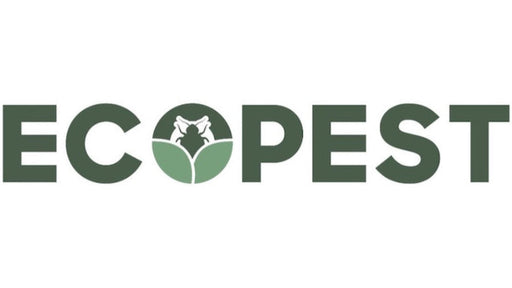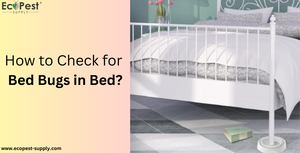
Pest infestations can quickly turn a comfortable home into a nightmare. These uninvited guests not only endanger your health, but also create property damage, hygiene problems, and financial hardships.
Pest control is critical for keeping a safe and comfortable living environment. That’s why in this post, we'll explore various defenses against insect infestations and how to keep your house free of these unwanted visitors. So, if you want to find out what is the best way to prevent pest infestation keep on reading.
Understanding the Impact of Pests on Home Life
Pests are more than simply an annoyance; they can have a substantial impact on your family's lifestyle.
Pests such as bed bugs, cockroaches, mosquitoes, and silverfish can wreak havoc on your living area. When dealing with pests, health risks are a major concern because they can transmit diseases and create allergies. Furthermore, some pests can cause structural damage to your home, requiring you to spend money on pricey repairs.
When pests are present, maintaining proper hygiene becomes difficult, putting your family's health at risk. Overall, dealing with a pest infestation can have a significant financial impact, ranging from medical expenditures to repair costs.
This is why taking proactive actions to prevent insect infestations is critical for a healthy and comfortable home.
Knowing the Common Pests in Your Home
It is critical to identify the common pests that can invade your home before implementing preventive measures. Ants, rodents, cockroaches, mosquitoes, and other pests can make their way into your home.
Each pest has its own set of features, habits, and possible hazards. Ants can contaminate food, and rodents can gnaw through wires and insulation. Cockroaches are disease carriers, and mosquitoes are infamous for carrying infections such as dengue and Zika virus. By familiarizing yourself with these pests, you can better tailor your prevention strategies to address specific risks.

Ways to Keep Pests Out of Your Home
Before dealing with existing infestations in your home, it’s important to learn about prevention measures. These simple and effective steps can help you control the pests in your home and prevent future infestations.
Here are a few suggestions and ways to keep pests out of your home:
- Seal Entry Points - Sealing access points is a critical step in insect infestation prevention. Pests frequently enter through cracks, gaps, and holes. Inspect your home for these flaws regularly and seal them properly.
- Improve Insulation - Proper insulation not only improves energy efficiency but also works as a pest barrier.
- Instal Screens - Screening windows, doors, and vents is an excellent approach to keep insects away while yet allowing airflow.
- Use Weatherstripping Tape - Weatherstripping is another important measure to prevent pests from entering through holes around doors and windows.
Effective Sanitation Practices
Keeping your home clean and tidy is essential for keeping pests at bay.
Here are a few examples of how to make your home a less desirable habitat for pests:Eliminate Food Sources
Pests such as cockroaches and rats are less likely to take up residence when food sources are removed. To prevent bugs from gorging on leftovers, store food correctly, clean up crumbs and spills promptly, and secure garbage cans. This should include your pet food bowls and water containers, as most pests are opportunistic and will eat anything to survive.

Declutter
Decluttering your living area can also help with pest control. Clutter provides hiding places for pests and attracts them, so keep your space clean and tidy. Pests such as silverfish and roaches need a place to hide, especially in dark and damp places such as basements and attics, so make sure you don’t forget to clear out those areas too.
Cleaning
Regular cleaning activities, such as vacuuming, mopping, and wiping down surfaces, can help to lessen the likelihood of pest infestations. This is especially true for kitchen counters, garbage disposals and bins. Even the smallest amounts of food residue are enough to attract roaches, rodents and other pests. If you suspect you might have unwanted visitors in your kitchen it’s a good idea to place a few glue traps to monitor the situation and take the right preventative and proactive steps if you catch any bugs.
Taking Care of Your Yard for Pest Prevention
Pest control extends beyond the confines of your home. Maintaining your yard is essential for eliminating pest habitats.
Proper lawn care, such as trimming bushes and clearing debris, minimizes outdoor pest shelters. Moisture management is also critical since standing water can serve as a breeding ground for mosquitoes and other water-loving pests. Consider planting pest-repelling herbs and flowers in your yard to naturally repel bugs. Plants such as lavender, mint, and marigold can help keep pests away.
There are also great sticky traps that you can use outside to minimize the presence of pesky pests in your yard.

Integrated Pest Management (IPM) Techniques
Integrated Pest Management (IPM) is a holistic approach that combines preventive measures, monitoring, and targeted interventions. By using this method, you can efficiently control insect infestation while using less dangerous pesticides. IPM includes employing pest-specific traps and baits, as well as introducing natural predators that can help keep pest populations in check. Beneficial insects and animals, such as ladybugs and birds, can play an important part in maintaining a healthy ecology in your house.
DIY Home Remedies and Non-Toxic Solutions
For those who prefer non-toxic solutions, there are several DIY remedies that can help repel pests. Essential oils with natural repellent traits, like peppermint, eucalyptus, and neem, can be utilized to make DIY sprays. Simple traps made of everyday materials can effectively catch pests without the need for chemical-laden solutions. Baking soda and vinegar, which are well-known for their cleaning abilities, can also help repel pests and discourage their return.
One of the most effective and natural solutions is diatomaceous earth (DE) powder that you can apply in your home and yard to eliminate various pests.
When to Seek Professional Help?
While preventive measures are important, there are times when professional help is required. It is critical to recognize the indicators of a serious infestation, such as increased pest activity or property damage. It is a good idea to consult a competent pest control agency when dealing with a major pest infestation.
Consider variables such as experience, reputation, and eco-friendly methods when selecting a provider. Before hiring, don't be afraid to ask questions to ensure you're making an informed decision.
Maintaining Long-Term Pest Prevention
Preventing pest infestations requires ongoing effort. It is critical that you create a schedule for pest protection tasks and incorporate them into your daily household upkeep. Consider seasonal factors as well while revising your strategy. Pest behavior can shift at different seasons of the year, so alter your approach accordingly. It’s always a good idea to have a few glue traps all around your home to capture all pests before the infestation becomes too severe.

What Is the Best Way to Prevent Pest Infestation?
Finally, preventing insect infestations is essential for maintaining a healthy and happy home environment. You can drastically lower the likelihood of pest infestations by understanding the effects of pests, knowing common intruders, applying preventive measures, practicing good cleanliness, and using efficient strategies such as Integrated Pest Management and DIY solutions.
Keep in mind that a mix of preventative measures, regular maintenance, and prompt professional help when needed can pave the path to a pest-free home. Consider visiting EcoPest Supply for more information on pest management methods that are both effective and environmentally safe. Protect your home, your health, and your peace of mind by taking action to prevent pest infestations today.






